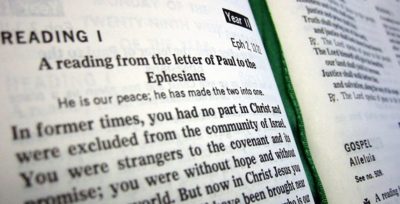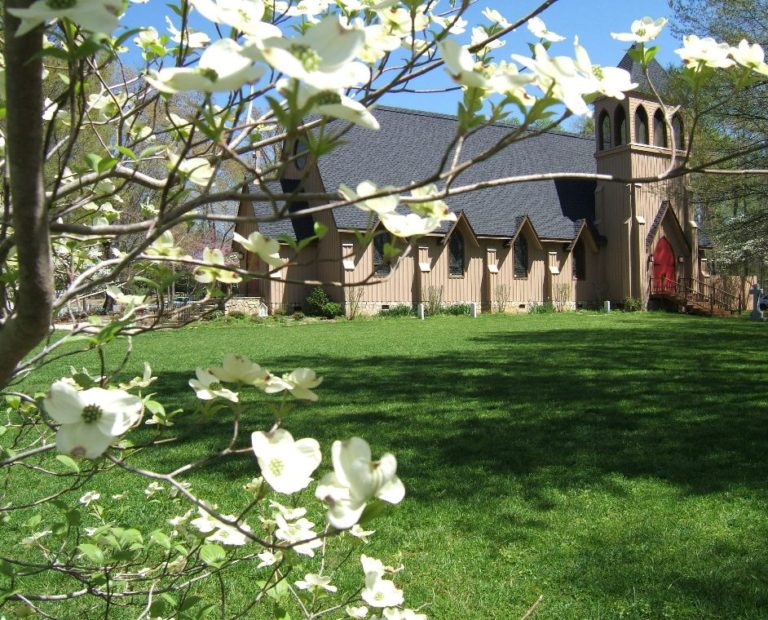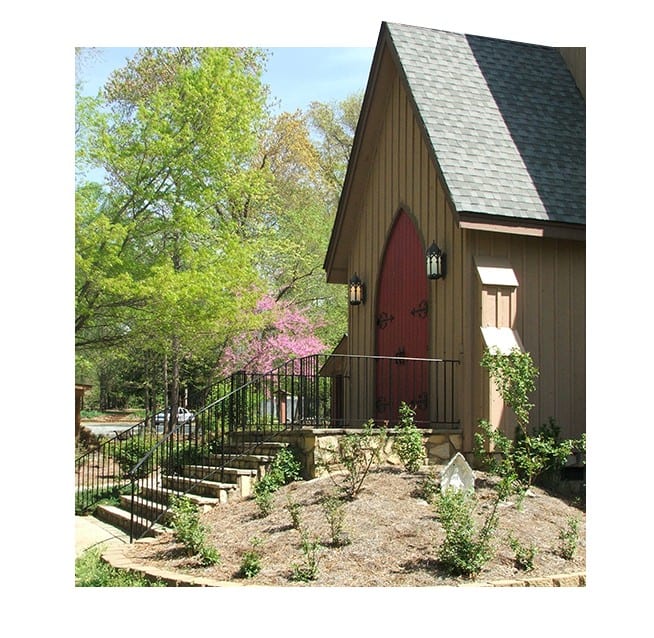Sunday School Adult Class Discussion
From meditation 2018
Now, we must speak of poor Peter. The first three Evangelists place all Peter’s denials of his Lord after this time and we should naturally conclude that they took place while our Lord stood before the Sanhedrim. But, it is normally thought that the scene around the fire took place overnight, the second crowing of the cock, if we are to credit ancient writers, would occur about the beginning of the fourth watch, or between three and four in the morning. By that time, however, the Council had probably convened, being warned, perhaps, that they were to prepare for being called at any hour of the morning, should the Prisoner be successfully secured. If this be correct, it is fairly certain that only the last of Peter’s three denials would take place while our Lord was under trial before the Sanhedrim.
One more thing may require explanation. If our Lord had to be transferred from the residence of Annas to that of Caiaphas, one is apt to wonder about there is no mention of His being marched from the one to the other. But the building, in all likelihood, was one and the same; in which case He would merely have to be taken perhaps across the court, from one chamber to another.
Now, (15-18) Simon Peter followed Jesus–Natural though this was, and safe enough, I am sure that he had “watched and prayed that he enter not into temptation,” as his Master had bade him (Mat 26:41), and now the other disciple; rather, “the other disciple”–our Evangelist John the Apostle himself, no doubt, was known unto the high priest–(See on JF & B for Joh 18:10) and went in with Jesus into the palace of the high priest.
16. But Peter had to stand at the door without, until by arrangement with his friend (John), till he should get access for him.
Then went out that other (John). . . and spake to her that kept the door, and brought in Peter. The naturalness of these small details is not unworthy of notice. This other disciple first made good his own entrance on the score of acquaintance with the high priest; this secured, he goes forth again, now as a privileged person on the inside, to make known his interest for Peter’s admission.
Unfortunately, Peter is in the coils of the serpent. The next steps can be best understood inverting Jhn 18:17.
17. Then saith the damsel that kept the door–“one of the maids of the high priest,” says Mark ( Mar 14:66 ). “When she saw Peter warming himself, she looked upon him and said” (Mar 14:67) “And thou also wast with Jesus of Nazareth.” Luke is more graphic ( Luk 22:56 ) –She “beheld him as he sat by the fire (literally, ‘the light’), and earnestly fixed her gaze upon him, and said “this man was also with him”
And now comes the question that each of us must face from time to time, as she questions Peter’s loyalty to Jesus thus acknowledging his relationship with his master. You can hear the indignation and hatred in her voice even today –
ARE YOU A CHRISTIAN?
Art thou not also one of this man’s disciples? Implying as well “that other disciple” (John) whom she knew to be one as well, but she did not dare challenge him, perceiving that he was a privileged person – for he was on the inside.
Peter reply’s I am not; denying them all who accused him (rightly so) by saying, I know not what thou sayest” (Mat 26:70). Peter puts forth a form of point blank denial; “I know not, neither understand I what thou sayest” (Mar 14:68); and “Woman, I know Him not” in Luk (22:57). So here we hear THE FIRST DENIAL.
“And he went out into the porch [thinking, perhaps, to hide away], and the cock crew,” ( Mar 14:68 ). 18. And the servants and officers—probably some of the “band” that “took Jesus” stood there, who had made a fire of coals, for it was cold, and they warmed themselves.
It is John alone who notices the material (charcoal) of which the fire was made, and the reason for a fire–the coldness of the night.” Yes, dark times are often mark by a coldness – if not of the weather – but of the heart. A coldness of heart cause by sin often can only be overcome by the warmth of Christ. Bad situations, often lose their “badness” as the warmth of Christ shines upon them. The terrible becomes tolerable and the anger seems to lesson day by day. But for these men, they had but a “charcoal fire” to keep them warm.
“Peter sits to see the end (Mat 26:5), and warmed himself at the fire” as well (Mar 14:54). These two statements are extremely interesting. His wishing to “see the end,” of these proceedings which led him into the palace, for he evidently feared the worst. But once in, the serpent coil is drawn closer; it is a cold night, and why should not he take advantage of the fire as well as others? Besides, in the talk of the crowd about the all-engrossing topic, he may hear something. There seems to be a battle within him, a kind of spiritual warfare in the midst of a world that was within the same battle.
To help visualize the situation: Mark says “And as Peter was beneath in the palace” (Mar 14:66). But Matthew (Mat 26:69) says, “sat without in the palace.” According to Oriental architecture, and especially in large buildings, as here, the street door, the heavy folding gate through which single persons entered by a door kept by a porter, opened by a passage or “porch” (Mar 14:68) into a quadrangular court, here called the “palace” or hall, which was open above, and is frequently paved with flagstones. In the center of this court the “fire” would be kindled (in a brazier). At the upper end of it, probably, was the chamber in which the trial was held, pan or stand, would have opened to the court and not far from the fire (Luk 22:61),
Continuing: 19-21. The high priest. . . asked Jesus of his disciples, and of his doctrine, surely attempting to entrap Him into some statements which might be used against Him at the trial. From our Lord’s answer it would seem that “His disciples” were thought to be some secret society. So he responds: 20. I spake–have spoken openly to the world–See Jhn 7:4. I ever taught in the synagogues and in the temple, where the Jews always gather in public. Ye ask, in secret have I said, but I spake nothing. For there was nothing taught of any different nature; because, all His private communications with the Twelve were but explanations and developments of His public teaching.
And now to prove his point of hiding nothing but speaking openly and plainly 21. Why askest thou me? (why don’t you) ask them which heard me. . . they know what I have said. As they attempt to draw Him into self-crimination, they resorted by falling back upon the right of every accused party, to have some charge laid against Him by competent witnesses. To add to the drama, as Jesus ask “Why askest thou me” he is 22. struck by the palm of a hand . . . As if to place even the Priest servants above Jesus they say “Answerest Thou the high priest so—Jesus responds 23. If I have spoken evil – then bear witness of the evil, and asks . . . “why smites thou me?
Often it is the simple question that can cause one to stumble and can cause one to reflect. The smiting of Jesus, was it pure anger or was it to show superiority – reflecting one’s pride in the ability to do so. So many today need to “heal” their anger and hatred, but yet this is what the world often promotes…it is often as if the world is against itself.
As our Lord is struck in the face, Peter is denying Jesus again…25. And Simon Peter was standing and warming himself. They said therefore. . . Art thou not also one of his disciples?–In Mat 26:71 the second charge was made by “another maid, when he was gone out into the porch,” who “saw him, and said unto them that were there, This [fellow] was also with Jesus of Nazareth.” So also Mar 14:69. But in Luk 22:58 it is said, “After a little while” (from the time of the first denial), “another [man] saw him, and said, Thou art also of them. He denied it, and said, I am not–in Mat 26:72, “He denied with authority this time, I do not know the man.” This was THE SECOND DENIAL.
26. One of the servants of the high priest, being a relative to the man whose ear Peter had cut off, saith, Did not I see thee in the garden with him–No doubt his relationship to Malchus drew attention to the man who smote him, thus enabling him to identify Peter.
The other Evangelists make his detection to turn upon his dialect. Luke says “After a while ‘about the space of one hour after’ (22:59 ) came unto him … and said to Peter, Surely thou also art one of them, for thy speech betrayeth thee” (Mat 26:73). “Thou art a Galilean, and thy speech agreeth thereto” (Mar 14:70; and so Luk 22:59). The Galilean dialect had a more Syrian cast than that of Judea. If Peter had held his peace, this peculiarity would not have been observed; but hoping, probably, to put them off the scent by joining in the fireside talk, he only thus revealed himself.
27.Now losing his case Matthew tells us (26:74) “Then began he to curse and to swear, saying, I know not the man.” This was THE THIRD DENIAL. and immediately–“while he yet spake” (Luk 22:60) the cock crew.
Of interest, Mark is the only Evangelist who tells us that our Lord predicted that the cock should crow twice (Mar 14:30), so he only mentions that it did crow twice (Mar 14:72). The other Evangelists, who tell us merely that our Lord predicted that “before the cock should crow he would deny Him thrice” ( Mat 26:34 Luk 22:34 Jhn 13:38.)
The immediately subsequent acts are given in full only in Luke (Luk 22:61, 62): “And the Lord turned and looked upon Peter,” from the hall of judgment to the court, in the way already explained. But who can tell of what lightning flashes of wounded love and piercing reproach shot from that “look” through the eye of Peter into his heart! “And Peter remembered the word of the Lord, how He had said unto him, Before the cock crow, thou shalt deny Me thrice. And Peter went out and wept bitterly.”
Meditation thoughts and questions:
1. Peter’s fall: Peter’s denial was but a momentary obstruction of the heavenly light and love to his Master which ruled his life. But the immediate cause of the revulsion, which made Peter “weep bitterly,” was, beyond all doubt, was the heart-piercing “look” which his Lord gave him was to keep him from despair, to work “repentance unto salvation” and to “restore his soul?” In Christ, there should not be despair, but hope; not fear, but love; living not in the past, but in the future. Am I able to see hope, love in the future of my life? If so, when; if not, why not.
2. “I spake spoken openly to the world” Why do some hear the openly
spoken word and others do not? How can we “hear” better and what is the role of Christ’s Church (St. Michael the Archangel) in spreading the word? How can I help St. Michael’s spread the word of Christ to the world around us?
3. “Did not I see thee in the garden with him” Peter was asked. If people
follow you today will they see you “with him?” How can you make Christ more
prevalent in your life. Do you wish to be seen “with him” – what would you like
people to see in you that reminds them of Christ?
Jhn 18:28-40. JESUS BEFORE PILATE
Jhn 18:28 – Then led they Jesus from Caiaphas unto the hall of judgment:
28. Then led they Jesus from Caiaphas to the hall of judgment, the palace of the governor of a Roman province – but they themselves went not into the judgment hall lest they should be defiled–by contact with ceremonially unclean Gentiles, so it was not till “in the morning after the chief priests held a consultation with the elders and scribes and the whole council to meet against Him, agreeing to put Him to death, so they bound Him” according to Mat 27:1.
Jhn 18:29 – Pilate then went out unto them, and said, What accusation bring ye against this man? 28 Pilate wants to know for what the charge was against this man that they had brought before him. It is difficult to determine guilt if one knows not what is the charge being investigated…Pilate is asking for what am I to judge?
Jhn 18:30 – They answered and said unto him, If he were not a malefactor, we would not have delivered him up unto thee. They were conscious they had no case of which Pilate could recognize; and therefore, they insinuate that they had already found Him worthy of death by their own law; but not having the power, under the Roman government, to carry their sentence into execution, they had come merely for his sanction. The Jews were basically telling Pilate “trust us we have already convicted him and we just need you to authorize our actions…just tell us OK and we will leave. Pilate sensing the Jews deception says unto them:
Jhn 18:31 – Take ye him, and judge him according to your law. The Jews therefore said unto him, It is not lawful for us to put any man to death:
This whole scene demonstrates the fear they had of Christ, for the one wants the other to do the dirty deed and each seem unsure of the ground upon which they stood – the bearing of false witness filled the room as one tries to nudge the other to take the final step. It is a scene of gang members daring one another.
Jhn 18:32 – That the saying of Jesus might be fulfilled, which he spake, signifying what death he should die- – – that is, by crucifixion – as we see in (Jhn 12:32 – 32 And I, if I be lifted up from the earth, will draw all men unto me., and also in Mat 20:19 And shall deliver him to the Gentiles to mock, and to scourge, and to crucify him: and the third day he shall rise again.); being the Roman mode of execution and could only be carried into effect by order of the governor. (Of note, the Jewish mode in such cases as this was by stoning).
Jhn 18:33 – Then Pilate entered into the judgment hall again, and called Jesus, and said unto him, Art thou the King of the Jews?
33. Pilate asks the question the question that many still ask today: Art tho the King of the Jews? But why would Pilate ask such a question? In Luke 23:2 they charge our Lord before Pilate with “perverting the nation, and forbidding to give tribute to Caesar, saying that He Himself is Christ a king.” Perhaps this was what occasioned Pilate’s question; regardless, Jesus probes the question with his answer…
Jhn 18:34 – Jesus answered him, Sayest thou this thing of thyself, or did others tell it thee of me? an important question for our Lord’s case, he wished to bring out whether the word “King” were meant in a political sense, with which Pilate had a right to know and deal with, or whether Pilate were merely put up to it by His accusers, because they had no claims to charge Him but such as were of a purely religious nature, with which Pilate had nothing to do.







